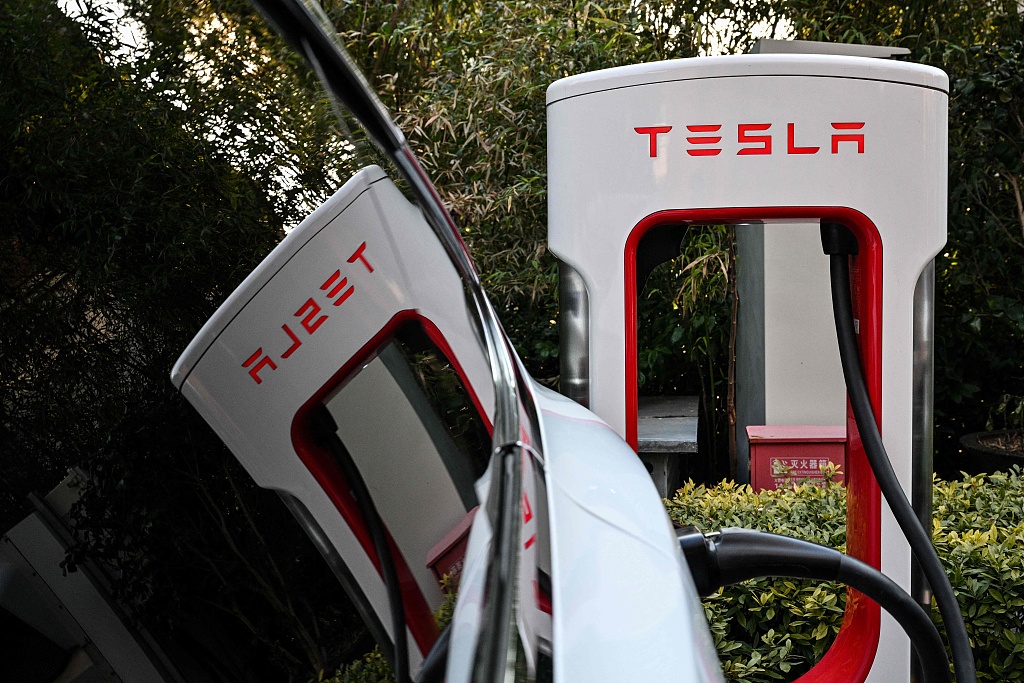
Tesla on Monday made a long-awaited update to its autopilot software in China to add a city navigation feature that is considered a limited version of its Full Self-Driving (FSD) feature available in the United States.
The U.S. electric vehicle maker, in a notification on its app, said capabilities will include automatic lane-changing depending on speed and route as well as detecting traffic lights at intersections and deciding whether to turn. An in-car camera will also monitor driver attention, it said.
The features are limited due to insufficient data training on Chinese roads and traffic rules, Reuters reported, citing a person with direct knowledge of the matter.
FSD is a suite of driving-assistance technologies developed with generative artificial intelligence to cope with more complicated traffic conditions whereas autopilot handles more routine conditions.
Musk wants to bring full autopilot and FSD systems to China but has said that the effort was proving to be tricky due to technological limitations. The company has postponed an initial goal of end-2024 to this year.
Tesla falling behind
The delays to rolling out a full FSD system in China have left Tesla on the back foot versus Chinese rivals such as Huawei, Xiaomi and BYD, which have launched dozens of EVs with advanced smart-driving software capable of navigating through China's complicated city traffic.
Tesla charges its customers an additional fee of nearly $9,000 to access a limited version of its FSD software in its EVs priced from $32,000.
By comparison, Xiaomi, whose SU7 electric sedan is priced from $29,700, has outsold Tesla's Model 3 in China on a monthly basis and offers an enhanced smart-driving system, including city navigation, for free.
Earlier this month, BYD also started offering advanced autonomous-driving features on most of its models for free, including ones priced as low as $9,555.
Tesla's autopilot update is on par with BYD's mid-tier version of its God's Eye system, which uses advanced computing and lidars to generate 3D images of a car's surroundings to assist navigation around obstacles. It is offered in its premium brand Denza and high-end models of its Dynasty and Ocean series.
Musk has said that Tesla is seeking regulatory approval from Beijing to fully roll out FSD in the country, but China currently only requires automakers to register any level-two update with the industry ministry.
Under industry standards, both autopilot and FSD are categorized as level-two autonomous driving technologies, so under Chinese law, they require human supervision and intervention when necessary.
03-19 15:4
The Pentagon seen from above, Arlington, Virginia, U.S., January 27, 2025. /VCGA California federal ...
03-19 15:4
Chinese Vice Foreign Minister Ma Zhaoxu (C), Russian Deputy Foreign Minister Ryabkov Sergey Alexeevi...
03-19 15:4
A demonstration figure of interstellar dust and China's Large Sky Area Multi-Object Fiber Spectr...
03-19 15:4
Xu Mengtao of China reacts after competing in the women's aerials final at the Federation of Int...
03-19 15:4
Chinese athletes compete in the men's team sprint at the International Skating Union (ISU) World...
03-19 15:4
Lin Shidong of China hits a shot against An Jae-hyun of South Korea in a men's singles round of ...